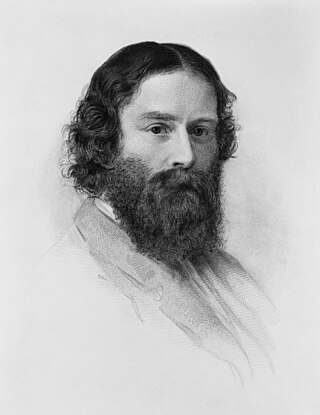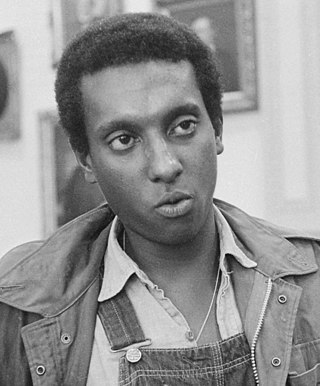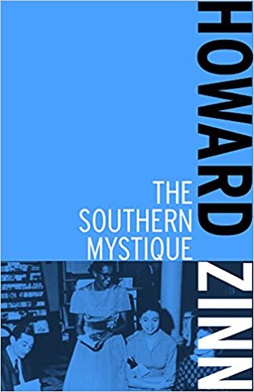Civil disobedience is the active, and professed refusal of a citizen to obey certain laws, demands, orders or commands of a government. By some definitions, civil disobedience has to be nonviolent to be called "civil". Hence, civil disobedience is sometimes equated with peaceful protests or nonviolent resistance. Henry David Thoreau's essay Resistance to Civil Government, published posthumously as Civil Disobedience, popularized the term in the US, although the concept itself has been practiced longer before.

Howard Zinn was an American historian, playwright, philosopher, socialist intellectual and World War II veteran. He was chair of the history and social sciences department at Spelman College, and a political science professor at Boston University. Zinn wrote more than 20 books, including his best-selling and influential A People's History of the United States in 1980. In 2007, he published a version of it for younger readers, A Young People's History of the United States.

The Student Nonviolent Coordinating Committee was the principal channel of student commitment in the United States to the civil rights movement during the 1960s. Emerging in 1960 from the student-led sit-ins at segregated lunch counters in Greensboro, North Carolina, and Nashville, Tennessee, the Committee sought to coordinate and assist direct-action challenges to the civic segregation and political exclusion of African Americans. From 1962, with the support of the Voter Education Project, SNCC committed to the registration and mobilization of black voters in the Deep South. Affiliates such as the Mississippi Freedom Democratic Party and the Lowndes County Freedom Organization in Alabama also worked to increase the pressure on federal and state government to enforce constitutional protections.

James Russell Lowell was an American Romantic poet, critic, editor, and diplomat. He is associated with the fireside poets, a group of New England writers who were among the first American poets that rivaled the popularity of British poets. These writers usually used conventional forms and meters in their poetry, making them suitable for families entertaining at their fireside.

Kwame Ture was an American activist who played a major role in the civil rights movement in the United States and the global pan-African movement. Born in Trinidad in the Caribbean, he grew up in the United States from the age of 11 and became an activist while attending the Bronx High School of Science. He was a key leader in the development of the Black Power movement, first while leading the Student Nonviolent Coordinating Committee (SNCC), then as the "Honorary Prime Minister" of the Black Panther Party, and last as a leader of the All-African People's Revolutionary Party (A-APRP).

Freedom Summer, also known as Mississippi Freedom Summer, was a campaign launched by American civil rights activists in June 1964 to register as many African-American voters as possible in the state of Mississippi. Blacks in the state had been largely prevented from voting since the turn of the 20th century due to barriers to voter registration and other Jim Crow laws that had been enacted throughout the American South. The project also set up dozens of Freedom Schools, Freedom Houses, and community centers such as libraries, in small towns throughout Mississippi to aid the local Black population.
Mary Elizabeth King is a professor of Peace and Conflict Studies at the United Nations affiliated University for Peace, a political scientist, and author of several publications. She is a graduate of Ohio Wesleyan University and received a doctorate in international politics from Aberystwyth University in 1999. She is also a Fellow of the Rothermere American Institute and a distinguished Scholar at the American University Center for Global Peace in Washington D.C.
James Forman was a prominent African-American leader in the civil rights movement. He was active in the Student Nonviolent Coordinating Committee (SNCC), the Black Panther Party, and the League of Revolutionary Black Workers. As the executive secretary of SNCC from 1961 to 1966, Forman played a significant role in the Freedom Rides, the Albany movement, the Birmingham campaign, and the Selma to Montgomery marches.
Staughton Craig Lynd was an American political activist, author, and lawyer. His involvement in social justice causes brought him into contact with some of the nation's most influential activists, including Howard Zinn, Tom Hayden, A. J. Muste, and David Dellinger.

Robert Parris Moses was an American educator and civil rights activist known for his work as a leader of the Student Nonviolent Coordinating Committee (SNCC) on voter education and registration in Mississippi during the Civil Rights Movement, and his co-founding of the Mississippi Freedom Democratic Party. As part of his work with the Council of Federated Organizations (COFO), a coalition of the Mississippi branches of the four major civil rights organizations, he was the main organizer for the Freedom Summer Project.
Neoabolitionist is a term used in historiography to characterize historians of race relations motivated by the spirit of racial equality typified by the abolitionists who fought to abolish slavery in the mid-19th century. They write especially about African-American history, slavery in the United States, the American Civil War and the Reconstruction Era.
Martin Bauml Duberman is an American historian, biographer, playwright, and gay rights activist. Duberman is Professor of History Emeritus at Lehman College in the Bronx, New York City.
The Albany Movement was a desegregation and voters' rights coalition formed in Albany, Georgia, in November 1961. This movement was founded by local black leaders and ministers, as well as members of the Student Nonviolent Coordinating Committee (SNCC) and the National Association for the Advancement of Colored People (NAACP). The groups were assisted by Martin Luther King Jr. and the Southern Christian Leadership Conference (SCLC). It was meant to draw attention to the brutally enforced racial segregation practices in Southwest Georgia. However, many leaders in SNCC were fundamentally opposed to King and the SCLC's involvement. They felt that a more democratic approach aimed at long-term solutions was preferable for the area other than King's tendency towards short-term, authoritatively-run organizing.
Hollis Watkins was an American activist who was part of the Civil Rights Movement activities in the state of Mississippi during the 1960s. He became a member and organizer with the Student Nonviolent Coordinating Committee (SNCC) in 1961, was a county organizer for 1964's "Freedom Summer", and assisted the efforts of the Mississippi Freedom Democratic Party to unseat the regular Mississippi delegation from their chairs at the 1964 Democratic Party national convention in Atlantic City. He founded Southern Echo, a group that gives support to other grass-roots organizations in Mississippi. He also was a founder of the Mississippi Veterans of the Civil Rights Movement.

A People's History of the United States is a 1980 nonfiction book by American historian and political scientist Howard Zinn. In the book, Zinn presented what he considered to be a different side of history from the more traditional "fundamental nationalist glorification of country". Zinn portrays a side of American history that can largely be seen as the exploitation and manipulation of the majority by rigged systems that hugely favor a large aggregate of elite rulers from across the orthodox political parties.

Diversity of tactics is a phenomenon wherein a social movement makes periodic use of force for disruptive or defensive purposes, stepping beyond the limits of nonviolent resistance, but also stopping short of total militarization. It also refers to the theory which asserts this to be the most effective strategy of civil disobedience for social change. Diversity of tactics may promote nonviolent tactics, or armed resistance, or a range of methods in between, depending on the level of repression the political movement is facing. It sometimes claims to advocate for "forms of resistance that maximize respect for life".
The Dallas County Voters League (DCVL) was a local organization in Dallas County, Alabama, which contains the city of Selma, that sought to register black voters during the late 1950s and early 1960s.
The Lowndes County Freedom Organization (LCFO), also known as the Lowndes County Freedom Party (LCFP) or Black Panther party, was an American political party founded during 1965 in Lowndes County, Alabama. The independent third party was formed by local African-American citizens led by John Hulett, and by staff members of the Student Nonviolent Coordinating Committee (SNCC) under the leadership of Stokely Carmichael.

Howard Zinn: A Life on the Left is a biography of Howard Zinn, written by Martin Duberman and published in 2012.

The Southern Mystique is a 1964 book by Howard Zinn that critiques current conceptions of racism in the North and South and the capacity for change in race relations. The book provoked considerable discussion at time of publication.










